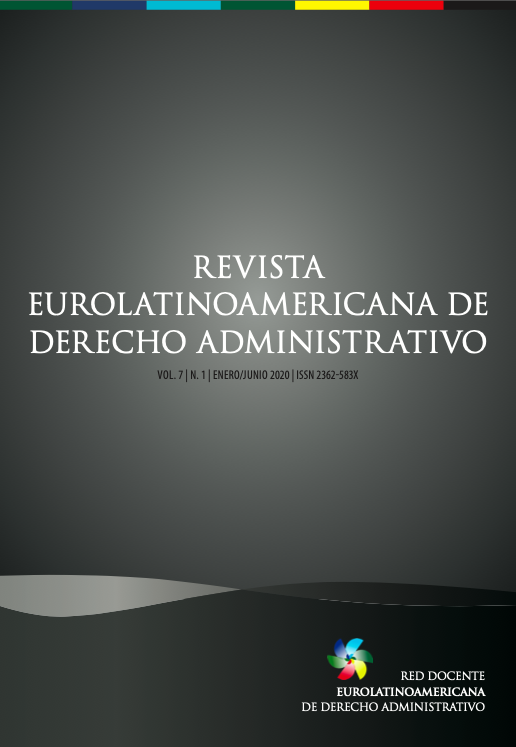The Organization of the Judicial System in Italy
DOI:
https://doi.org/10.14409/redoeda.v7i1.8716Keywords:
Italy, judicial system, ministry of justice, judiciary independence, administrationAbstract
This paper provides a complete overview of the organization of the Judicial system in Italy with the aim to examine the relationships between the various organs operating in its field. It analyzes the structure and functions of all the bodies involved in various ways in the administration of justice: the Ministry of Justice, which exercises essentially organizational powers and which has the task of guaranteeing the overall efficiency of the system; the self-governing bodies of the judiciary, which ensure its independence from other State Powers, and the single judicial offices dislocated over the peninsula. Particular attention is dedicated to the complex system governed by the laws set in order to provide for disciplinary procedures and job evaluation, which involve both the efficiency of the judges and their relationship with the bodies involved in the administration of the system.
References
DI FEDERICO, Giuseppe. “Lottizzazioni correntizie” e politicizzazione del CSM: quali rimedi? Quaderni costituzionali, n 2, p. 279-297, 1990.
FERRARI, G. Consiglio Superiore della Magistratura, autonomia dell’ordine giudiziario e magistrati. In Studi in onore di C. Esposito. Padova, 1974.
GAROUPA, Nuno, GINSBURG, Tom. The comparative Law and Economics of Judicial Councils, Berkely Journal of International Law, n. 53, 2008.
ITALY. Presidenza della Repubblica italiana. R.d.lgs. 511/1946. Available at: http://presidenza.governo.it/USRI/magistrature/norme/dlvo511_1946.pdf
ITALY. Parlamento della Repubblica Italiana. Legge 195/1958. Available at: https://www.normattiva.it/uri-res/N2Ls?urn:nir:stato:legge:1958.
ITALY. Corte costituzionale della Repubblica italiana. Sentenza 168/1963. Available at: https://www.giurcost.org/decisioni/1963/0168s-63.html
ITALY. Presidenza della Repubblica italiana. Decreto legislativo n. 190/1970. Available at: https://www.giurcost.org/decisioni/1970/0190s-70.html
ITALY. Parlamento della Repubblica italiana. Legge 695/1975. Available at: https://www.gazzettaufficiale.it/eli/id/1975/12/31/075U0695/sg
ITALY. Presidenza della Repubblica italiana. Decreto legislativo n. 72/1991. Available at: https://www.parlamento.it/parlam/leggi/deleghe/99300dl.htm.
ITALY. Presidenza della Repubblica italiana. Decreto legislativo n. 300/1999. Available at: https://www.parlamento.it/parlam/leggi/deleghe/99300dl.htm.
ITALY. Parlamento della Repubblica italiana. Legge 44/2002. Available at: https://www.camera.it/parlam/leggi/02044l.htm,
ITALY. Corte costituzionale della Repubblica italiana. Sentenza 379/2002. Available at: https://www.giurcost.org/decisioni/2004/0379s-04.html
ITALY. Corte costituzionale della Repubblica italiana. Sentenza 380/2003. Available at: https://www.giurcost.org/decisioni/2003/0380s-03.html
ITALY. Corte costituzionale della Repubblica italiana. Sentenza 200/2006. Available at: https://www.cortecostituzionale.it/actionSchedaPronuncia.do?anno=2006&numero=200
ITALY. Parlamento della Repubblica Italiana. Decreto Legge 25/2006. Available at: https://www.camera.it/parlam/leggi/deleghe/testi/06025dl.htm
ITALY. Presidenza della Repubblica italiana. Decreto legislativo n. 159/2011. Available at: https://www.bosettiegatti.eu/info/norme/statali/2011_0159.htm.
ITALY. Costituzione della Repubblica Italiana, 1947.
LURIE, A. REICHMAN, SAGY, Y. The Regulation of Judges: Institutional Realisms and the Hidden Importance of Agencification, The Regulation of Judges, 2016.
MERLINI, Stefano. Il Consiglio Superiore della Magistratura, la Costituzione e la democrazia, Quale giustizia. 1971.
MORTATI, Costantico. Istituzioni di diritto pubblico. Padua, 1969.
VOERMANS, Wim; ALBERS, Pim. Councils for the Judiciary in EU Countries. Strasbourg, 2003. Available at SSRN: https://ssrn.com/abstract=1271182
ZAGREBELSKY, Gustavo. Amnistia, indulto, grazia. Imprenta: Milan, 1974
Downloads
Published
How to Cite
Issue
Section
License
Authors who publish in this Journal agree to the following terms:
- Authors retain copyright and grant the Journal of Constitutional Research the right of first publication with the article simultaneously licensed under the Creative Commons - Attribution 4.0 International which allows sharing the work with recognition of the authors and its initial publication in this Journal.
- Authors are able to take on additional contracts separately, for non-exclusive distribution of the version of the paper published in this Journal (eg.: publishing in institutional repository or as a book), with a recognition of its initial publication in this Journal.
- Authors are allowed and encouraged to publish their work online (eg.: in institutional repositories or on their personal website) at any point before or during the submission process, as it can lead to productive exchanges, as well as increase the impact and the citation of the published work (see the Effect of Open Access).



























.png)





